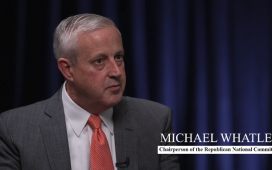WASHINGTON — U.S. Trade Representative Katherine Tai said on Wednesday that she will partner with the Mexican government to try to “prevent a race to the bottom” for U.S. and Mexican workers.
Tai told the U.S. Senate Finance Committee in prepared testimony that she will use the new factory-specific labor enforcement provisions of the U.S.-Mexico-Canada Agreement on trade to address longstanding labor issues in Mexico.
USTR earlier on Wednesday requested that the Mexican government review allegations that worker rights were denied in a union vote at a General Motors truck plant in Mexico under the USMCA’s “rapid response” labor enforcement provisions.
“This use of the rapid response mechanism demonstrates that we will act when workers in certain facilities are denied their rights under laws necessary to fulfill Mexico’s labor obligations,” Tai said.
She said the USMCA, which last year replaced the 1994 North American Free Trade Agreement, has “the most comprehensive, enforceable labor and environmental standards of any U.S. trade agreement”.
Tai last week announced that the U.S. would support World Trade Organization negotiations for a waiver of intellectual property rights for COVID-19 vaccines. She reiterated in her remarks that these negotiations may take time, adding: “I am encouraged that other countries have already announced that they will roll up their sleeves and join us.”
She also said the Biden administration will work with the private sector and other partners to ramp up efforts to expand vaccine manufacturing and distribution around the world, including access to the raw materials.
Tai said she was working with the European Union and Britain to resolve a long-running Boeing-Airbus subsidy dispute and also having “constructive discussions” to address overcapacity in the steel and aluminum sectors coming primarily from China.
“These talks will take time, but I believe a resolution is possible and worth pursuing,” Tai said.







